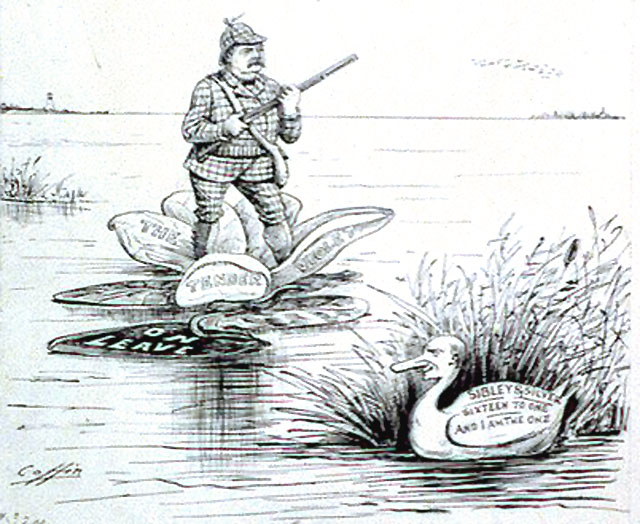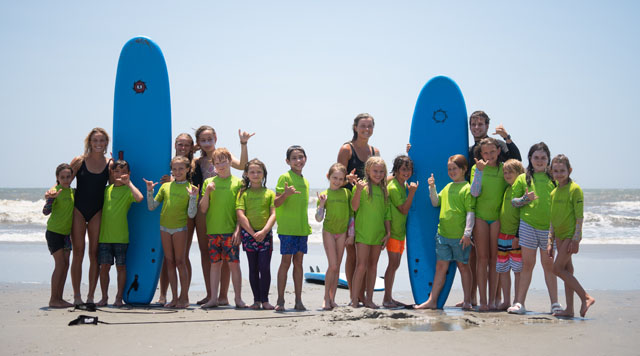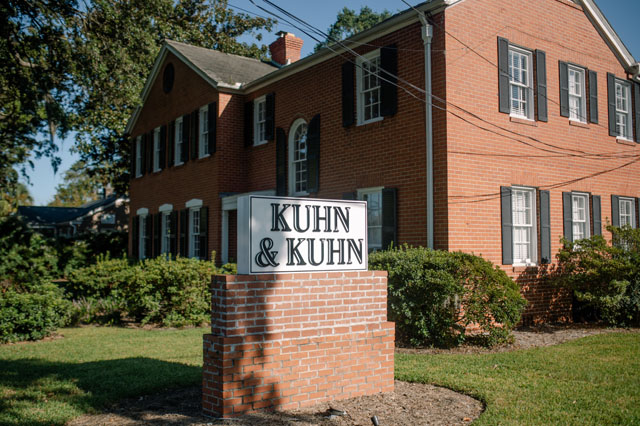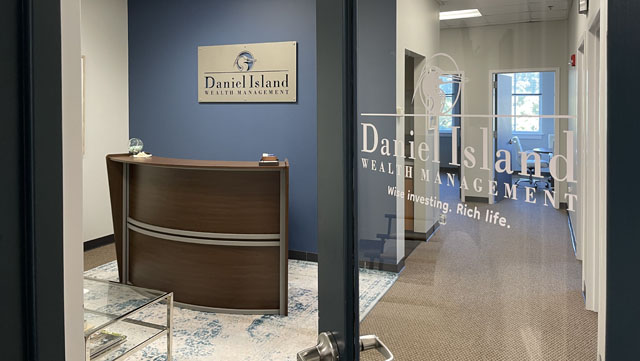Supporting Warfighters at Home
03 Jan 2024
NIWC Atlantic has a big impact on the local community and the world
By Holly Fisher
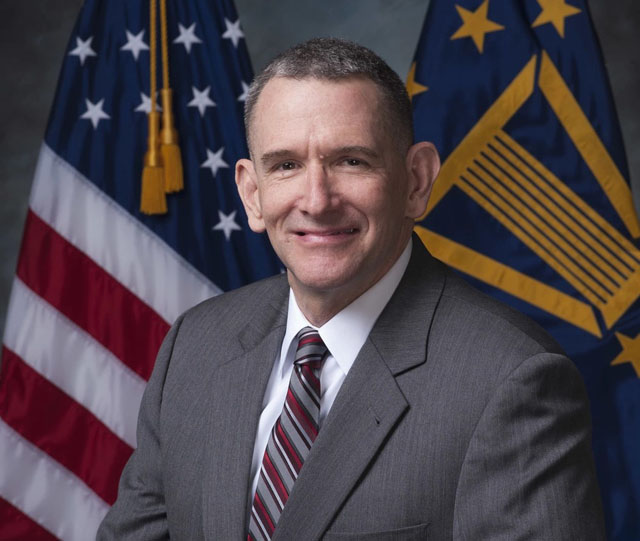
Peter C. Reddy has been the executive director of NIWC Atlantic for four years, and just when he thinks he knows everything that’s going on in the massive military information warfare organization he oversees, he discovers something new.
It’s a testament to the wide breadth and scope of the work happening at the Naval Information Warfare Center Atlantic (formerly SPAWAR) based in Charleston. As the senior civilian leader at NIWC Atlantic, Reddy is tasked with prioritizing the programs, research projects and initiatives that are all vying for time, staff attention and dollars.
“We have to make sure we’re making the right investments in our labs, facilities and programs,” Reddy said.
NIWC Atlantic’s primary mission is to solve the American warfighter’s technical challenges through research, development, prototyping, delivery and sustainment of the very best in information warfare solutions.
While most people look at the military’s multibillion-dollar budget and think that’s a big number, Reddy said, “There’s always more we could do. So, what’s the next best thing to spend a dollar on?”
NIWC Atlantic relies on its government workers and a substantial number of contractors to accomplish its mission and support the Navy and Marine Corps through information warfare. As a result, the work happening at NIWC Atlantic pumps a significant amount of money into the national and state economies.
A Multibillion-Dollar Impact
A recent study by the University of South Carolina’s Darla Moore School of Business detailed the total impact of NIWC Atlantic’s economic activity. The study revealed the command’s economic impact of $9.3 billion on the United States and $3.2 billion in South Carolina.
While the broad economic impact is significant, the effect on local workers is even greater in terms of offering highly-skilled jobs and premium salaries.
Case in point: NIWC Atlantic employs about 76 percent of all electronics engineers in Charleston and 40 percent of all electronics engineers in South Carolina. Of the Charleston center’s more than 3,000 employees, more than 66 percent work in cybersecurity fields.
The average annual wage among all employees at NIWC Atlantic is $109,535 – a substantial 86 percent above the national average.
Reddy said he knew the center’s impact was significant, but he was struck by the growth of the numbers since the last economic impact study was published in 2019. The numbers have snowballed and spread in four years.
The economic impact for the United States grew 35 percent, and the impact on South Carolina increased 28 percent.
“It’s an extended impact,” Reddy said. “We hire industry partners. And they hire people.”
The higher salaries are a direct result of the kind of talent needed at NIWC Atlantic. Reddy said they employ a large number of data scientists, engineers and software developers – all positions that are in high demand across multiple sectors.
A Higher Purpose in Cybersecurity
Reddy said NIWC Atlantic has one key advantage—something he calls the “cool factor.”
“The difference between us and the highest wage provider in the same skillset is that we’re supporting sailors and Marines who are defending the nation,” he said.
The uniqueness of the work and its higher purpose gives NIWC Atlantic a competitive edge as they work to attract the best talent. Of course, Charleston is an enticing place to live, which doesn’t hurt the recruitment effort, Reddy noted.
Employees, contractors and industry partners definitely feel that “cool factor” when it comes to the projects coming out of NIWC.
For example, in mid-October, several leaders from NIWC Atlantic headed to Florida for a demonstration on unmanned weapons and hybrid fleets hosted by the U.S. Naval Forces Southern Command. The trip was part of the command center’s effort to scale unmanned platforms to the fleet level, including unmanned air, surface and subsurface systems.
NIWC Atlantic is exploring how the 5G next-generation network can revolutionize Marine, Navy and Coast Guard operations, such as inventory management and improved technology on ships and submarines.
And cybersecurity is a big focus as professionals work to keep Department of Defense hospital networks safe, and other teams pretend to be the bad guys as a way to test systems and improve cyber defense.
Collaboration + Innovation
Collaboration also fuels the work, allowing NIWC Atlantic to fast track its progress. In March, the center signed a memorandum of agreement with the Department of Energy—Savannah River to work together on advanced technology projects for each organization. They’ll combine research and development efforts in such fields as electromagnetic warfare, cybersecurity and autonomous systems.
The agreement was the result of the NIWC Atlantic’s Palmetto Tech Bridge, an initiative to forge partnerships with academic institutions, small businesses, government labs and others to share information that benefits both national defense and the region’s economy.
“Who has the next best innovation? Who are the people we need to hire? We’re always looking for the next best way to collaborate,” Reddy said.
A retired Marine and professional engineer, Reddy’s day-to-day work is focused on ensuring his people have the resources they need to do their work. He develops strategic goals and oversees the technical work that ultimately supports the Navy’s warfighters.
He’s constantly looking for ways to optimize the work being done in a way that benefits both the taxpayer and the nation. Most days, that translates to a lot of meetings.
But when Reddy can get out into the field and engage with the center’s workforce of veterans, long-time civilian employees, and the brand-new professionals, he gets excited.
“That combination of seeing people do the work is so cool and so fun,” he said.
BIO
Peter Reddy
Executive Director, NIWC Atlantic
Education: Bachelor of science in aerospace engineering from University of Virginia; Masters of Science in systems engineering from the Naval Postgraduate School in Monterey, California; masters of strategic studies from the Marine Corps War College; Master’s in business administration from George Mason University; Master’s certificate in information systems and operations from NPS; graduate of the Air Command and Staff College and the Marine Corps War College.
Family: Wife, two children, four grandchildren
Hobbies: Running on Daniel Island’s trails and visiting his grandchildren in Bluffton, S.C., and San Diego.

